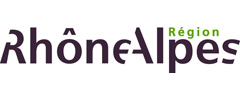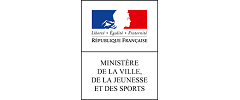Include gender mainstreaming in EU - article by the Working Group Gender +E3
Generally the EU is good at including gender mainstreaming or demanding an equal number of seats for women in decision making groups when it comes to climate change. However, the ambition doesn´t seem to stretch further than developing policies and third countries, and is not reflected inside EU itself.
12.11.2013 |GenderCC in cooperaion with GenderE3

Gender Training conducted by WECF partners in Kyrgyzstan
The group wants to influence the debate and political decision-making on current global challenges, such as climate change and inequality. That can be made through the political agenda of the political groups and committee work in the EP. It can also be done outside the EP in global forums through articles like this one or through statement and other actions.
We need to practice what we preach. Generally the EU is good at including gender mainstreaming or demanding an equal number of seats for women in decision making groups when it comes to climate change. However, the ambition doesn´t seem to stretch further than developing policies and third countries, and is not reflected inside EU itself.
The upcoming Conference of the Parties (COP) meeting in Warsaw is the perfect opportunity to make important changes inside the EU, to include gender experts, gender training and gender mainstreaming. This is an important part of combating climate change and stopping the androcentrism (patterns that place men and maleness at the center) which is in fact hindering emission cuts and important changes in climate policies.
A year ago a decision on gender balance was adopted during the United Nations Framework Convention on Climate Change Conference in Doha, Qatar. The motivation was “to improve women’s participation and inform more effective climate change policy that addresses the needs of women and men equally”. But as always, attention is mostly directed towards developing countries and development cooperation.
Socially constructed roles and identities affect the way women and men experience climate change and respond to it. Such gender patterns have been widely observed in many different countries and cultures, and are often used to identify gender differences between women and men in their perceptions and attitudes, needs, power and use of resources as an entry point for addressing gender issues in climate change – like in any other area of policy.
Main dimensions of Gender and Climate Change in Europe
Although gender mainstreaming is an adopted strategy in EU, it is not implemented in this policy field. Research undertaken for the European Institute for Gender Equality (EIGE) has pointed out that none of the measures undertaken to mitigate climate change addressed any gender issues – even if these were obvious. Perceptions and attitudes towards climate change in general are depending on gender but also on education and income; something which has been documented in several European countries.
Decision making in climate change policy is highly male dominated. According to a study conducted by Milieu Ltd and LIFE e.V. in 2011, on average only 24 per cent of high level positions interlinked with climate change policy were held by women. Impacts of policies and measures without gender perspective might reinforce traditional gender roles and thereby increase current gender gaps. The existing climate policy in European countries has been largely gender-blind, reducing the effectiveness and efficiency of low-carbon, climate resilient development.
Gender balance – a first step towards gender equality
However, gender balance is only a first step towards gender equality. While equal representation is important and a right in itself, it is not necessarily a step towards gender responsive or gender sensitive climate policy. This is not only about supporting women in receiving their fundamental rights. It is about rethinking policy from a gender perspective.
Thus, although gender balanced teams, boards or delegations might provide better opportunities for addressing gender issues, they are not automatically more gender sensitive than unbalanced ones. It depends on the sensitivity and experience of the individuals involved and their willingness to question their own roles.
Additionally, experience with many years of gender equality policy clearly shows that without including men and without encouraging them to rethink their own roles, there will be no gender equality.
Gender equality – next steps needed
From our point of view, the ultimate goal of addressing gender in climate change policy is a fundamental transition to a low carbon development in a just society, a society based on gender equality and on caring – for people, the environment and the climate. There are some fundamental requirements for implementing gender equality:
- EU and Member States should acknowledge and take the lead for gender mainstreaming at COP19 in Warsaw.
- Require gender expertise of male and female climate change experts and staff in institutions through gender training. Gender training provides basic understanding of gender inequality, as well as helping participants rethink gendered attitudes and structures.
- Include gender experts in boards and delegations to and ensure that gender dimensions are seriously addressed.
- Create gender balance in high level positions related to climate change.
- Make sure that research about gender dimensions of climate policy is undertaken.
- Use available gender analysis instruments and further develop and create new ones, which fit different circumstances. Provide funding to fulfill or implement the requirements mentioned above.
- Systematic gender impact assessment of climate change policies, as well as gender budgeting.
Gender +E3
MEP, Mikael Gustafsson (GUE/NGL)
MEP, Nicole Kiil-Nielsen (Greens/EFA)
Ulrike Röhr, Genanet
Friends of the Earth Sweden
European Women's Lobby
Women in Europe for a Common Future
Global Water Institute
Related News
Getting to the Future We Want
4-7 November, Brussels: European Environmental Bureau’s (EEB) Annual Conference
12.11.2018
WECF's Anke Stock: Gender mainstreaming is beneficial for the environment
Involving women in local projects triggers innovative solutions
18.04.2014
Include gender mainstreaming in EU - article by the Working Group Gender +E3
Generally the EU is good at including gender mainstreaming or demanding an equal number of seats for women in decision making groups when it comes to climate change. However, the ambition doesn´t seem to stretch further than developing policies and third countries, and is not reflected inside EU itself.
12.11.2013 | GenderCC in cooperaion with GenderE3





































